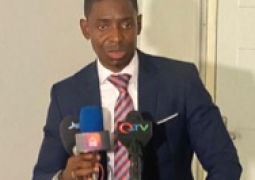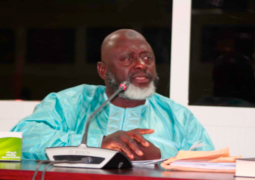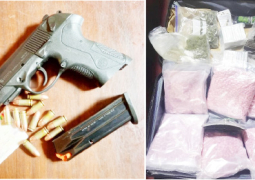
As the National Assembly Members’ (NAMs) standing committee on Defence and Security continued the second day of the tour, they were welcomed by Commander Bojang, who highlighted some major challenges that they faced at the camp.
He said, the army has terms and conditions of services, which they operate on but due to the situation, they cannot follow those rules, he added.
“At some points, soldiers would rent rooms outside the camp premises while government is giving as house rent D250 per month”, Bojang told the committee.
This has seriously affected the economic status of soldiers at the moment, three or four men would share a single room despite the coronavirus pandemic challenges, he told the committee.
Lt. Bojang said the feeding scheme of The Gambia Armed Forces is D15 for each a soldier per day. “This is small compared to the market price of food stuff. Our feeding needs to be considered as we are human beings.”
As health is fundamental to human life, Farafenni 2nd Infantry Battalion faces a serious health crisis. The health facility available at the camp cannot sustain the people, commander complained.
“Without health, no human being can perform duties as expected. We are calling on the government to help improve our health system.”
According to him, “the battalion is covering the whole of NBR, CRR and LRR. In order for effective operational service to be conducted, there should be adequate fuel to help the soldiers move from place to place.”
The battalion has five sub-camps used for deployment at: Njongon, Kerr Pateh, Lamin Koto, Kudang and Pakaliba.
He said all deployment areas are geared towards the effective operational activities of the army. Njongon is located on the border and it also serves as a quick reaction for any unforeseen energy that is moving towards Banjul.
The camp has few vehicles that operate in the whole of the region as he called on the government to supply them with more vehicles to make work easier.
The committee further visited some other outdated rooms which are not fit for human use and expressed hope that at the end of the tour, they would provide a report and make efforts to solve some of the key challenges highlighted by the armed forces.




